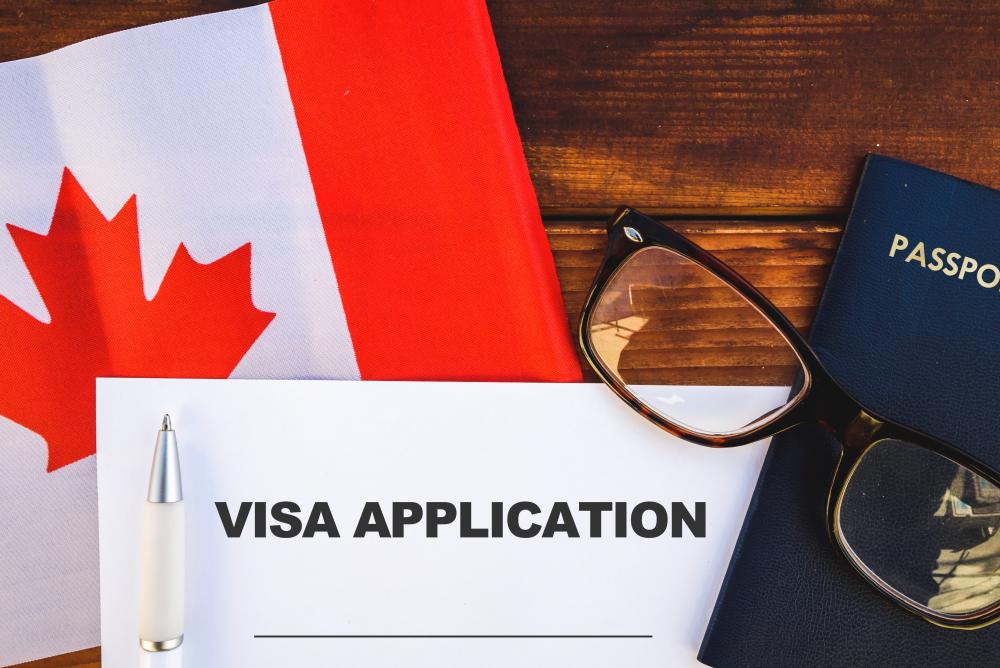
 Study Permit
Study Permit
Canada remains a sought-after destination for international students aspiring to experience higher education in a diverse and multicultural environment. However, the journey to obtaining a Canadian study permit can be challenging, with an approval rate of 64% in 2020, leaving many applicants facing the prospect of a Canada student visa rejection.
Why do some study permit applications get refused? What are the common reasons for Canada student visa refusal? How can you avoid them and increase your chances of getting a Canadian study permit? In this blog post, we will answer these questions and provide some tips on preparing a successful application. Understanding the reasons for Canada student visa rejection is crucial. In this blog post, we’ll delve into common Canada visa refusal reasons and offer guidance on what to do if faced with a Canada student spouse visa rejected situation, providing valuable insights for a successful application.
Embarking on the journey to study in Canada is an exciting venture, but facing a Canada student visa rejection can be disheartening. Understanding the myriad visa rejection reasons for Canada is essential for future applicants. Common Canada student visa rejection reasons include incomplete documentation or insufficient financial proof. If you find yourself wondering “what to do if Canada student visa is rejected,” Lets explore some effective strategies to address Canada visa refusal reasons.
Navigating a Canada student spouse visa rejected situation requires strategic planning and a proactive approach, ensuring a smoother path to securing your Canadian study permit. Explore the insights provided here to enhance your understanding and increase your chances of success.
One of the most important study permit Canada requirements is to provide sufficient and consistent documents that prove your identity, financial status, academic background, and ties to your home country. IRCC requires applicants to diligently address potential Canada visa refusal reasons by ensuring accurate documentation and understanding the study permit process for a successful application. Some of the documents you need to submit include:
Any missing, incomplete, or inconsistent documents, such as sudden changes in bank statements or discrepancies in academic transcripts, can lead to a Canada student visa rejection. For example, if your bank statements show sudden or unexplained deposits or withdrawals or your academic transcripts do not match your educational history, the visa officer may doubt your credibility and intentions.

Navigating the Canadian study permit application successfully necessitates a thorough understanding and adherence to Immigration Rules, ensuring compliance and mitigating potential Canada visa refusal reasons. Consistency and completeness in your documentation fortify your application against potential Canada visa refusal reasons. This proactive approach enhances your credibility and reduces the likelihood of Canada visa refusal reasons.
Another common reason for Canadian student visa refusal is insufficient funds. Insufficient funds constitute another prevalent factor leading to Canadian student visa rejection. As mentioned above, one of the study permit Canada requirements is to prove that you have enough money to pay for your tuition fees, living expenses, and return transportation for the duration of your studies in Canada. The IRCC website provides a table of minimum funds required and based on your country of origin and the number of family members accompanying you.
Failing to exhibit sufficient funds for yourself and any dependents in Canada heightens the risk of visa rejection reasons for Canada. The visa officer may also consider other factors such as the cost of living in your intended city of study, the exchange rate between your currency and the Canadian dollar, and the availability of scholarships or bursaries.
Read more: Canadian permanent resident
Another reason why some study permit applications get refused is a lack of ties to their home country. Insufficient ties to the home country constitute another factor contributing to Canada student visa rejection. The visa officer needs to be convinced that you will leave Canada at the end of your authorized stay and return to your home country. Demonstrating a strong connection in these areas is vital to alleviate concerns regarding visa rejection reasons for Canada related to insufficient ties.
Strengthen your application by emphasizing your enduring connections, ensuring a smoother approval process for your study permit in Canada. If faced with Canada visa refusal reasons, consider seeking professional guidance on what to do if Canada student visa is rejected to enhance your reapplication strategy.To do so, they will assess your ties to your home country, such as:
If you do not have strong ties to your home country, the visa officer may suspect that you intend to stay in Canada permanently or work illegally. This may result in a Canada study permit refusal letter.

Another reason why some study permit applications get refused is the incomplete or incorrect application form. Incomplete or incorrect application forms pose another significant factor contributing to Canada student visa rejection. Leaving fields blank, providing false information, or introducing errors may result in visa rejection reasons for Canada. The application form is the main document that the visa officer will use to assess your eligibility and suitability for a Canadian study permit. Therefore, it is crucial that you fill out the form accurately and completely.
To avoid Canada visa refusal reasons, meticulously fill out the application form, ensuring alignment with supporting documents to present a cohesive and accurate portrayal of your eligibility for a Canadian study permit. If confronted with what to do if Canada student visa is rejected, consider seeking professional guidance to enhance your reapplication strategy. If you leave any fields blank, provide false or misleading information, or make errors or typos in your application form, your application may be refused. The visa officer may also compare your application form with your supporting documents and check for any inconsistencies or discrepancies.
Read more: Canada Open Work Permit
Poor interview performance is a notable factor contributing to Canada student visa rejection. In some instances, a visa officer may request an interview to verify information or seek additional details, which could impact Canadian study permit processing time. Sometimes, the visa officer may request an interview with you to verify your information or ask additional questions.
The interview may be conducted in person, by phone, or by video call. To mitigate the risk of visa rejection reasons for Canada, prepare thoroughly for the interview, ensuring confidence and coherence in your responses. If you perform poorly in the interview, your application may be refused and may affect your Canadian study permit processing time. The visa officer may judge your interview performance based on factors such as:
Acquiring a Canadian study permit poses challenges, but success is achievable. Steering clear of the five common reasons for study permit refusals in Canada significantly heightens your chances of approval. Getting a Canadian study permit can be challenging but not impossible.
For more detailed information on Canadian study permits and personalized guidance, don’t hesitate to reach out to our knowledgeable agents at SayHomeCanada Immigration today. By avoiding these five common reasons for study permit refusals in Canada, you can increase your chances of getting approved.
If you are interested in learning more about Canadian study permits, feel free to contact our agents at SayHomeCanada Immigration today!
Thank you for the response .
Let's Connect